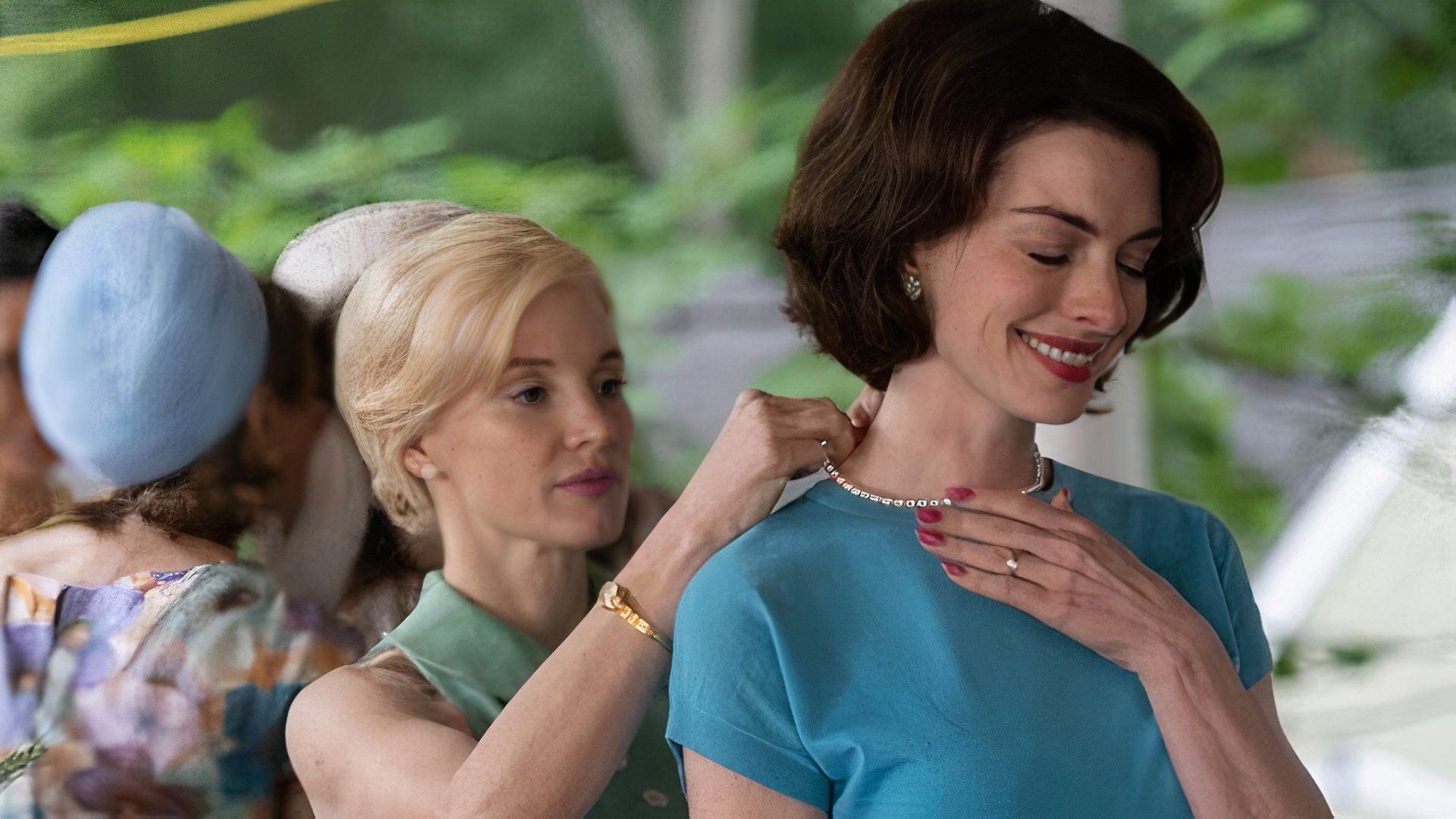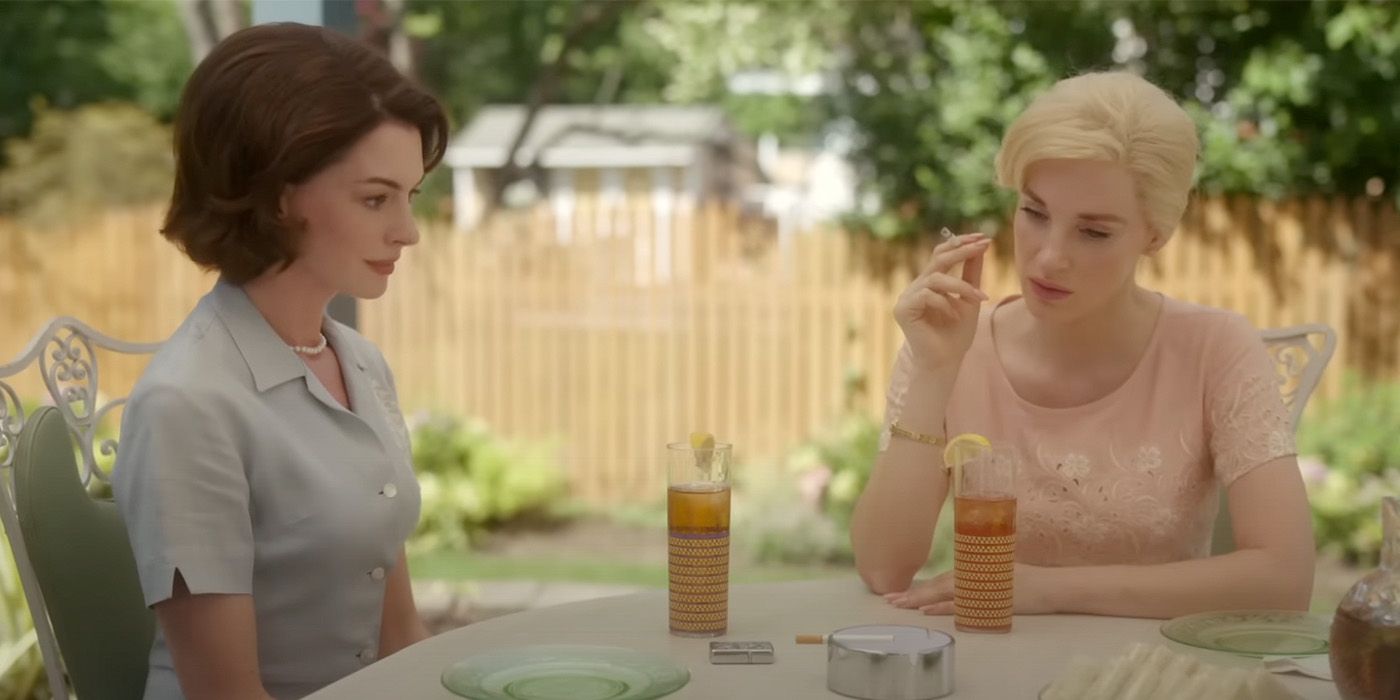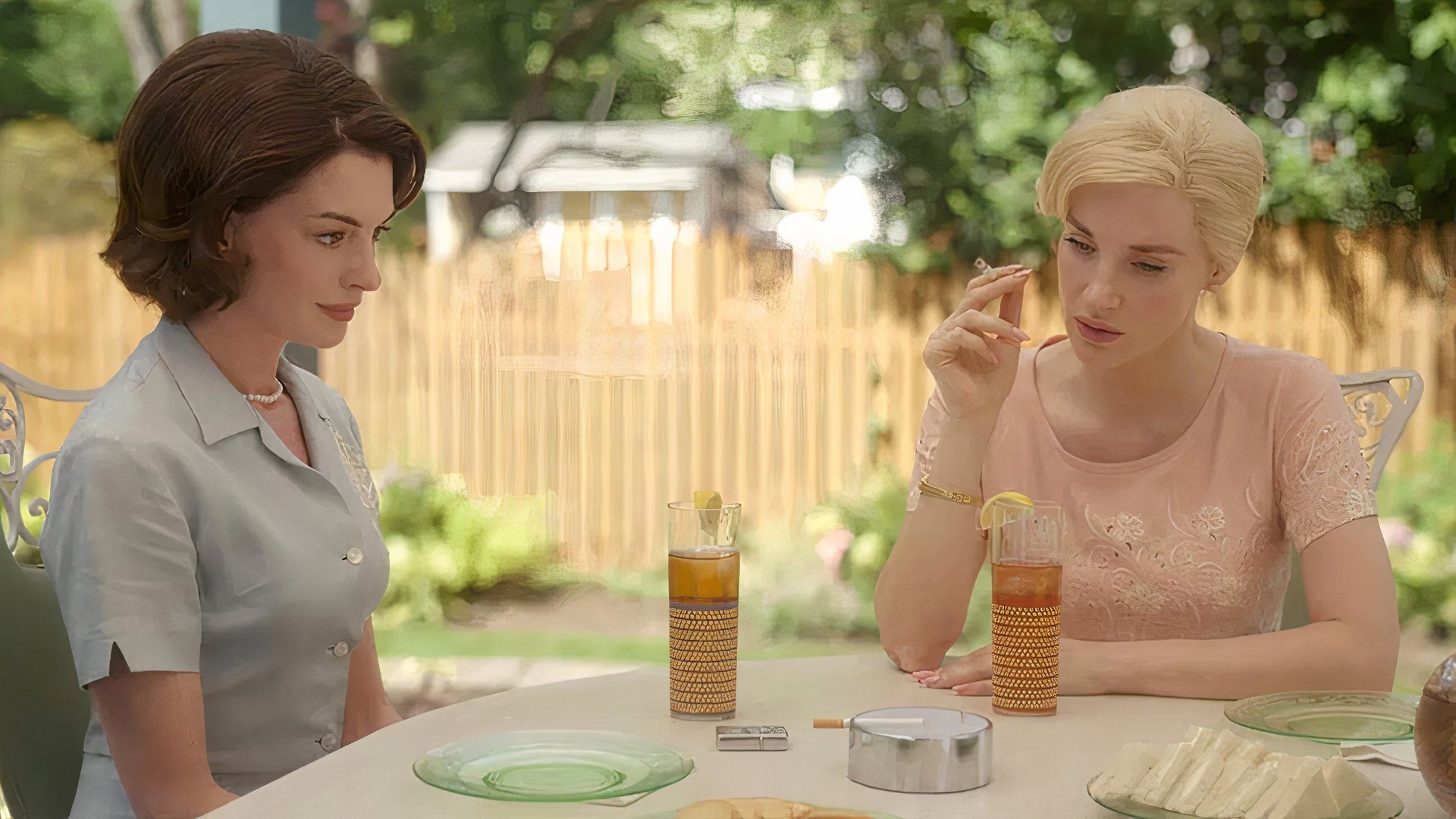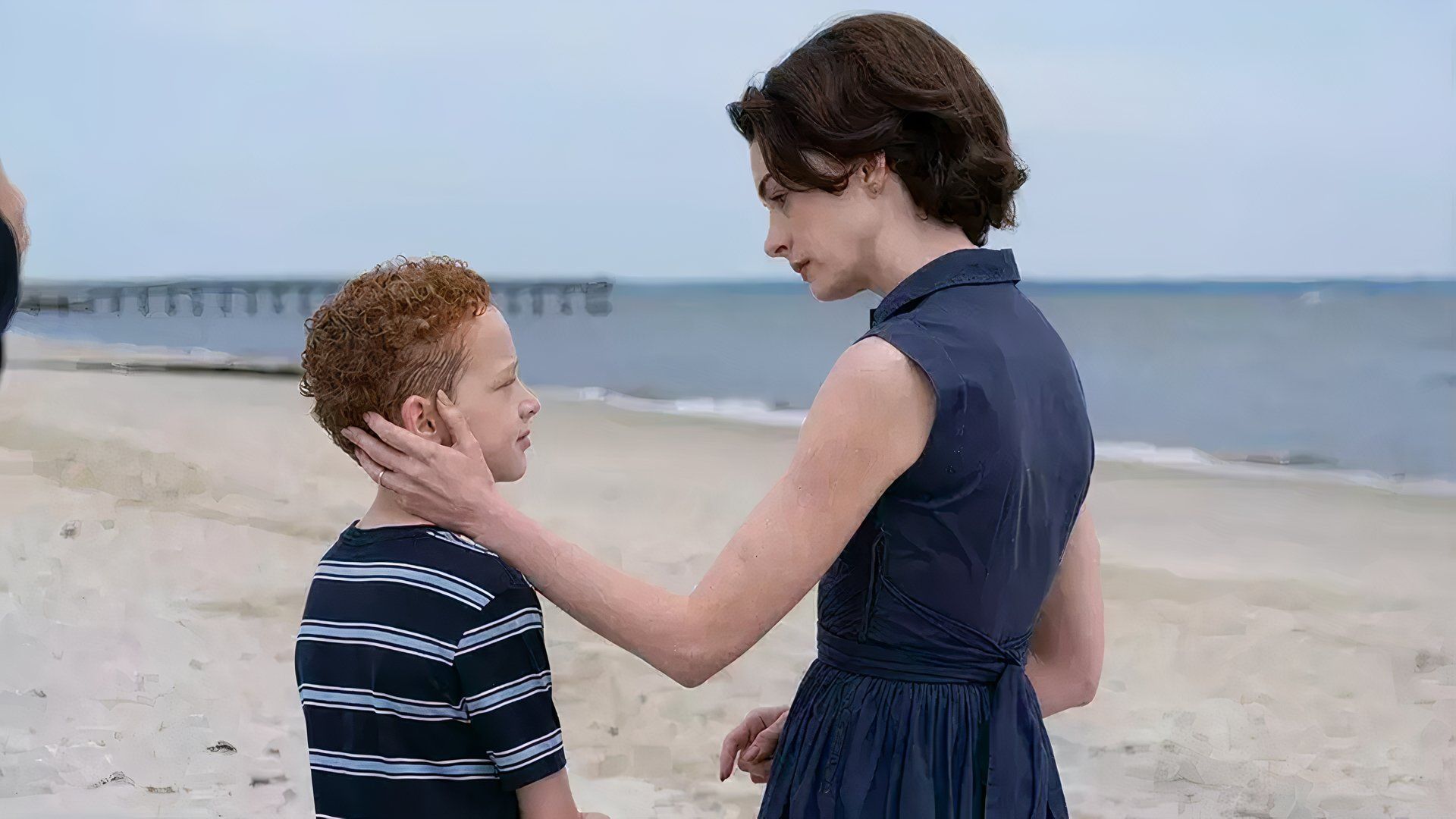For many years, the rose-tinted nostalgia for the alleged tranquility that existed in the America of the 1950s and ’60s has permeated popular culture. Whether it’s Happy Days, American Graffiti, or even the Hill Valley of 1955, as seen in Back to the Future, there’s a longing for the carefree innocence of the nuclear family and the American dream, all existing behind the comfort of a white picket fence. Depending on who you might ask, this suburban utopia never existed and is pined for by those who have never experienced it first-hand. Mother’s Instinct, a 2024 thriller starring Anne Hathaway and Jessica Chastain, ultimately deconstructs this illusion.
Mother’s Instinct, which captures the look and feel of America during the Kennedy-era 1960s, is far from a perfect thriller or an original one, as it’s a remake of the 2018 Belgian thriller Duelles. Despite some shortcomings in its execution, Mother’s Instinct succeeds in exploring themes of trauma, revenge, and the methodical calculation of those who hide behind the mask of sanity. The eradication of safety and security is relatable to anyone, regardless of what time period they live in.
Deconstructing the Tranquility of Suburbia
The ideal setting of suburbia, with its white picket fences, disposable incomes, and the so-called American dream, is where Mother’s Instinct takes place. Alice (Jessica Chastain) and Celine (Anne Hathaway) are neighbors and friends living insulated lives in 1960s suburbia. Observing their lives on the surface, one concludes that they’ve achieved the so-called “American dream,” with their large houses, a car in the driveway, children, and adoring husbands to provide for them. Their children, Theo (Eamon O’Connell) and Max (Baylen D. Bielitz), are inseparable friends who attend school and play with one another when they’re not in class.
This idyllic and charmed existence becomes unraveled when Celine’s son Max falls to his death after playing on the balcony of their home. Max’s death serves as the catalyst for an unflinching look at trauma and PTSD as Celine grieves and her husband, Damian (Josh Charles), descends into heavy drinking and isolation. Besides catalyzing what will be an unflinching look at envy, revenge, and intrigue, Max’s death is ultimately the dissolution of the alleged utopia that exists within the confines of the suburbs.

This Campy Anne Hathaway & Jessica Chastain Thriller Is a Streaming Hit After Barely Getting a Theatrical Release
After a blink-and-you’ll-miss-it theatrical release, this thriller with Jessica Chastain and Anne Hathaway has found new life on streaming.
Along with deconstructing the myth of a suburban utopia is Alice’s perception of a world slowly crumbling around her. Celine and Theo form a bond under the pretense of helping one another heal from the trauma in the wake of Max’s untimely death, but maybe it’s too close a bond. Mother’s Instinct attempts to blur the lines between perception and reality as Alice soon becomes convinced that Celine intends to destroy her family. Still, the veil is lifted far too soon to allow tension or genuine suspense to be built up. Had it not been for the powerhouse performance from Hathaway as a suburban mother turned calculating assailant, the entire film might have been forgettable.
A Performance of Calculation and Deceit
Coinciding with the ideal of a suburban utopia is the concept of keeping up appearances. Throughout Mother’s Instinct, the concept of keeping up appearances to mask trauma and grief is prominent. When it comes to Anne Hathaway’s performance of wearing the mask of sanity to hide her true intentions from those around her, she completely succeeds. The character’s wardrobe is evidently influenced by Jackie Kennedy, the first lady, during the time Mother’s Instinct takes place. Celine wears the same pillbox hats that the former first lady was known for and even wears a similar mourning outfit during Max’s funeral that Jackie Kennedy wore at John F. Kennedy’s televised funeral service in Washington, DC.

Anne Hathaway’s Top 10 Movies, Ranked by Box Office Numbers
Anne Hathaway is one of the most successful actresses in Hollywood, and she always gets people to go to the cinema.
Hathaway manages to pull off the manipulating family usurper who wears the mask of sanity well; much of this is due to a combination of performance and the character’s presentation, which mimics that of a suburban socialite. The tension that mounts between Celine and Alice and the deception she employs bolsters the deconstruction of suburbia that’s present throughout Mother’s Instinct. The film’s conclusion, in which Celine succeeds in her deadly game and conquest of the family, certainly goes against audience expectations.
Similar thrillers that focus on a family usurper, such as The Hand That Rocks the Cradle, usually end with the antagonist falling short of success and being dealt the ultimate punishment. Hathaway’s ability to articulate methodical planning and deception is certainly memorable and, along with the themes of deconstruction, makes Mother’s Instinct an interesting watch in spite of its shortcomings.
Better at Themes Than Narrative Storytelling
When it comes to being an effective thriller, Mother’s Instinct lacks the suspense and high tension that many of its predecessors did. Be that as it may, Mother’s Instinct deserves praise for eradicating the rose-tinted nostalgia of the 1950s and ’60s-era suburbia and its attention to period-specific details that make the setting seem believable. Themes of trauma, sociopathy, and the mask of sanity are always compelling, and Anne Hathaway certainly embodies the ideal “monster next door” whom we all fear might exist in our own neighborhood.